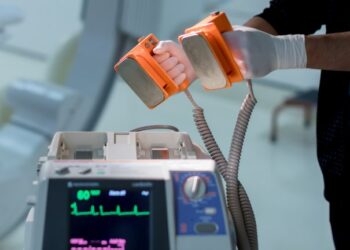Let’s face it, it seems like everyone is in a rush these days, so much so that people even start taking their health for granted. In a world where managing health often means juggling multiple medications, the risk of medication errors is a serious concern. Mismanagement can lead to ineffective treatment, adverse reactions, or even life-threatening situations. Understanding how to organize and administer medication correctly is essential for anyone looking to maintain optimal health, particularly for those with chronic conditions. This article explores practical tips to reduce the likelihood of medication errors in daily health routines, ensuring that each dose contributes positively to your health journey.
Table of Contents
Understanding Your Medications
The first step in avoiding medication errors is to thoroughly understand each medication you take. This means knowing not just the name, but the purpose, dosage, timing, and potential side effects of each drug. You should be clear about why you’re taking a particular medication, how it helps your condition, and the consequences of missing a dose. Keeping a written or digital record of all your medications, including over-the-counter drugs and supplements, can aid in this understanding and prevent confusion.
Organizing Medication Schedules
A well-organized medication schedule is key to managing your health regimen effectively. Consider factors like the time of day, meals, and how many medicines you need to take daily when planning your schedule. For those on multiple medications, services offered by a med sync pharmacy can be invaluable. These services coordinate all your prescriptions to be refilled on the same day each month, simplifying your medication routine and reducing the risk of errors or missed doses.
Using Pill Organizers
Pill organizers can be a simple yet effective tool for managing daily medications. They come in various forms, from basic daily compartments to more sophisticated weekly or monthly systems. With a pill organizer, you can be sure that you take the right medication at the right time, and it can be especially helpful for those with complex medication regimens or memory challenges.
Optimizing Medication Efficacy through Proper Storage
Proper storage of medications is a critical yet often overlooked aspect of medication management. Many medications have specific storage requirements, such as being kept at room temperature or refrigerated, to maintain their efficacy. Exposure to heat, light, moisture, or cold can alter a medication’s effectiveness. It’s important to understand and adhere to these storage guidelines. In addition, safely storing medications away from children or pets is essential to prevent accidental ingestion. This step ensures that each medication retains its intended potency and safety, thereby playing a pivotal role in effective health management.
Setting Reminders and Alarms
In today’s digital age, setting reminders and alarms on your smartphone or other devices is a convenient way to remember medication times. Many apps are designed specifically for medication management, offering features like customizable alarms, dosage tracking, and refill reminders. These technological aids can be particularly beneficial for those with busy lifestyles or who take medications at multiple times throughout the day.
Regularly Reviewing Medications with Healthcare Providers
Regularly review your medication regimen with healthcare providers. This review should include a discussion about the effectiveness of the medications, any side effects you’re experiencing, and the necessity of each prescription. It’s an opportunity to verify that all your medications are still appropriate for your current health status and to make adjustments as needed. Regular reviews also help in staying updated about any new medications or changes in recommendations.
Double-checking Pharmacy Labels and Instructions
One of the most straightforward yet vital practices is to double-check pharmacy labels and instructions. Each time you receive a new prescription or refill, take a moment to confirm that the medication is correct and that you understand how to take it. This includes checking the name, dosage, and administration instructions. If there is any discrepancy or if something is unclear, don’t hesitate to consult with your pharmacist. This practice is particularly important for those who may be on multiple medications, as it prevents mix-ups and ensures that each medication is taken as intended.
Being Aware of Look-alike/Sound-alike Medications
Medications with similar names or appearances can easily be confused. To avoid mix-ups, familiarize yourself with the medications you are taking, both in name and appearance. When you receive a new prescription, take note of its color, shape, and any imprints. Being vigilant about these details can significantly reduce the risk of taking the wrong medication. In addition, when receiving your medication, you can ask your pharmacist about any look-alike or sound-alike medications to be aware of.
Educating Yourself on Side Effects and Interactions
Understanding the potential side effects and interactions of your medications is crucial. This knowledge can help you recognize when a medication may be causing adverse effects and when it’s necessary to consult a healthcare provider. Being aware of how your medications interact with each other, as well as with over-the-counter drugs, supplements, and even certain foods, can prevent harmful reactions. This awareness is integral in managing your medications safely and effectively.
Maintaining Open Communication with Pharmacists and Healthcare Providers
Open and regular communication with your healthcare providers and pharmacists is essential in preventing medication errors. This includes discussing any concerns or questions you may have about your medications, reporting any side effects, and keeping them informed about any other medications or supplements you are taking. Your healthcare team can provide valuable insights, make necessary adjustments to your regimen, and guide you towards safe medication practices.
Conclusion
In summary, reducing medication errors in daily health routines requires a combination of vigilance, knowledge, and effective communication. From double-checking labels and being aware of look-alike medications to educating yourself about side effects and utilizing synchronization services, each strategy plays an integral role in ensuring medication safety. Maintaining open communication with your healthcare providers and pharmacists further enhances this safety net. By incorporating these practices into your medication management routine, you contribute significantly to your overall health and well-being.
Effective medication management is not just about adhering to a schedule; it’s about understanding, organizing, and actively participating in your health care. With these strategies in place, you can confidently manage your medications and navigate your health journey with greater assurance.


 Home
Home









